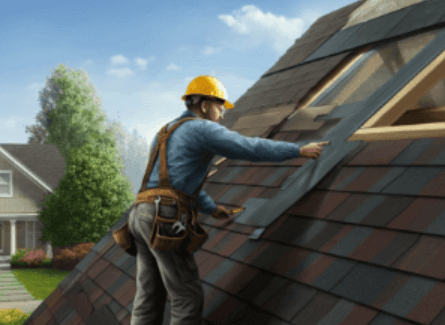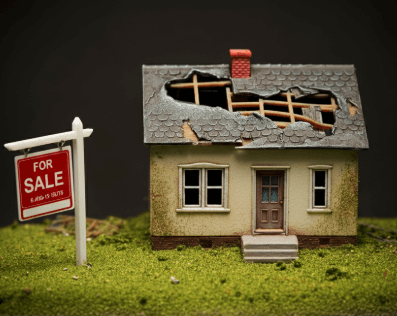In Florida’s competitive real estate market, homeowners often find themselves in challenging situations that can impact their ability to sell. One of the most pressing concerns is the condition of a property’s roof. If you’re wondering, “Can you sell a house with a bad roof in Florida?” the answer is yes—but there are key insights to consider. Understanding the implications of a damaged roof can help you navigate the selling process effectively. In this blog, we’ll delve into the factors that influence your ability to sell a house with a bad roof in Florida and offer strategies to enhance your likelihood of a successful sale.
When selling a house with a bad roof in Florida, connecting with experienced real estate investors like Steve Daria and Joleigh can be beneficial. They specialize in purchasing houses for cash, irrespective of their condition, offering a quick and hassle-free solution for homeowners facing roofing issues. By engaging with knowledgeable buyers, you can simplify the selling process and enhance your likelihood of a successful transaction.
Understanding the Challenges of Selling a House With a Bad Roof
When it comes to selling a house with a bad roof, one of the biggest obstacles is the potential for deterring buyers.
A bad roof can signal underlying issues, leading potential buyers to question the overall condition of the property.
However, acknowledging these challenges is the first step in overcoming them.

Buyer Concerns
Buyers are naturally cautious about properties with structural issues.
A bad roof can lead to water damage, mold growth, and higher maintenance costs, which are significant red flags for any buyer.
Insurance and Financing Hurdles
Many insurance companies may hesitate to provide coverage for a house with a bad roof.
Similarly, securing financing can be more challenging for buyers, as lenders often require the property to be in good condition.
Market Perception
The real estate market in Florida is competitive, and properties with known issues can struggle to stand out.
Ensuring your property remains attractive despite its flaws is crucial.
Get An Offer Today, Sell In A Matter Of Days…
Evaluating the Extent of Roof Damage
Before you can effectively sell a house with a bad roof in Florida, it’s essential to understand the extent of the damage. This will help you decide on the best course of action.
Professional Inspection
Hiring a professional inspector can provide a detailed assessment of the roof’s condition.
This report will not only help you understand the problem but also provide transparency to potential buyers.
Estimate Repair Costs
Once you have a clear understanding of the damage, obtain quotes from reputable roofing contractors.
Knowing the repair costs will help you set a realistic selling price and arrange with buyers.
Deciding Between Repairs or Selling “As Is”
One of the most critical decisions you’ll make is whether to repair the roof before selling or to sell the property “as is.”
Benefits of Repairs
Repairing the roof can make your property more attractive to buyers.
It eliminates concerns about future costs and can potentially increase the property’s value.
Selling “As Is”
On the other hand, selling the house “as is” can save you time and money upfront.
This approach might appeal to investors looking for fixer-uppers or buyers willing to take on the repairs themselves.
Pricing Your House Competitively
Putting the right price is crucial when selling a house with a bad roof.
You need to balance attracting buyers and getting a fair return on your investment.
- Consider the Repair Costs: Consider the repair value and adjust the selling price accordingly. Be transparent with buyers about the roof’s condition and repair costs.
- Market Comparisons: Research nearby properties to see how much similar homes are selling for. This will help you set a competitive price for your house’s condition.
Marketing Strategies for Selling a House With a Bad Roof in Florida
Effective marketing can significantly influence the success of selling a house with a bad roof. Here are some strategies to consider:
- Highlight Positive Features: Highlight the property’s strengths, like its location, layout, and unique features. Ensure potential buyers see its value despite the roof issues.
- Full Disclosure: Being honest about the roof condition can build trust with buyers. Provide inspection reports and repair estimates upfront to show transparency and credibility.
- Professional Photography: Quality images can make a big distinction in attracting buyers. Hire a professional photographer to get the best aspects of your property.
Working With Real Estate Professionals
Partnering with a real estate agent who has experience dealing with properties that have structural issues can be invaluable.
- Finding the Right Agent: Look for agents who have a track record of selling homes with similar challenges. They will have the expertise and networks to market your property effectively.
- Negotiation Skills: A skilled agent can arrange on your behalf, ensuring you get the best possible deal. They can also help manage buyer expectations and address any concerns.

Offering Incentives to Buyers
Incentives can make your house more appealing to potential buyers. Here are some ideas:
- Closing Cost Assistance: Offer to cover part of the closing costs to lessen the financial burden on the buyer.
- Repair Credits: Provide credits for roof repairs that buyers can use after closing. This gives them the flexibility to address the issue on their terms.
- Home Warranty: Providing a home warranty can reassure buyers and offer them peace of mind, knowing they are protected against future repairs.
Legal Considerations When You Sell a House With a Bad Roof in Florida
Understanding the lawful implications of selling a house with a bad roof is crucial to avoid any potential issues down the line.
- Disclosure Requirements: Comply with Florida’s homeowner disclosure laws by informing buyers about the roof’s condition. Neglecting to comply may result in legal repercussions.
- Contract Clauses: Include specific clauses in the sales contract that address the roof condition and any agreed-upon repairs or credits. This protects both you and the buyer.
Conclusion
The query, “Can you sell a house with a bad roof in Florida?” presents unique challenges, but with the right strategies, it’s entirely achievable. By understanding the extent of the damage, deciding on repairs, setting a competitive price, and employing effective marketing techniques, you can attract the right buyers and close the deal successfully. Remember, transparency and honesty are your allies in this process.
**NOTICE: Please note that the content presented in this post is intended solely for informational and educational purposes. It should not be construed as legal or financial advice or relied upon as a replacement for consultation with a qualified attorney or CPA. For specific guidance on legal or financial matters, readers are encouraged to seek professional assistance from an attorney, CPA, or other appropriate professional regarding the subject matter.

